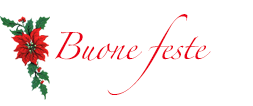
Nella prima parte della massima opera di Goethe – qui in una nuova traduzione e con una particolare attenzione alle messinscene europee del testo – Faust, professore universitario, si dà alla magia onde comprendere ciò che tiene insieme il mondo nell’intimo suo essere. L’ardore conoscitivo è molteplice: politico, animico, intellettuale, estetico, scientifico, spirituale, ultramondano. Dopo averlo a lungo invocato, Faust entra per un estatico istante in contatto con lo Spirito della Terra, un aspetto del divino, che di quel mondo crea la veste vivente, e sperimenta il più alto raggiungimento della sua vita. Nulla potrà offrirgli di paragonabile un povero Mefistofele, forza infera, e la scommessa è vinta in partenza.
In the first part of Goethe’s greatest work – here presented in a new translation into Italian, with a particular focus on European stagings of the text – Faust, university professor, devotes himself to magic from the desire to comprehend what holds the world together deep within its being. He yearns for manifold knowledge: political, animic, intellectual, aesthetic, scientific, spiritual and otherworldly. After long invoking it, Faust enters for an ecstatic moment into contact with the Spirit of the Earth, an aspect of the divine, which creates the living garment of this world, and experiences the supreme fulfillment of his lifetime. Nothing comparable can be offered him by poor Mephistopheles, the infernal force, and Faust’s wager is won from the start.
MARIA FRANCA FROLA, già professore ordinario di Letteratura Tedesca all’Università Cattolica di Milano, è stata lettrice di Lingua e Letteratura Italiana nelle Università di Bochum e di Colonia e docente di Lingua e Letteratura Tedesca allo IULM di Milano. Ha collaborato all’ente radiofonico Deutschlandfunk di Colonia. I suoi ambiti di studio e di ricerca scientifica sono alchimia, armonica e teosofia nella letteratura tedesca, al cui interno ha pubblicato numerosi saggi e articoli. Ha curato e diretto la traduzione dei testi di Hans Kayser Manuale di Armonica e Paestum, I suoni nascosti nei tre templi greci di Paestum. Per il teatro ha tradotto Cleopatra di Lohenstein.
MARIA FRANCA FROLA, former full professor of German literature at the Università Cattolica in Milan, has been lecteur in Italian Language and Literature at the Universities of Cologne and Bochun and Professor of German Language and Literature at the IULM in Milan. She has worked for the Deutschlandfunk public broadcaster in Cologne. Her fields of study and scientific research are alchemy, harmonics and theosophy in German literature, on which she has published numerous essays and articles. She has edited and directed translations of the texts by Hans Kayser Manuale di Armonica e Paestum, I suoni nascosti nei tre templi greci di Paestum. For the theater she has translated Cleopatra.